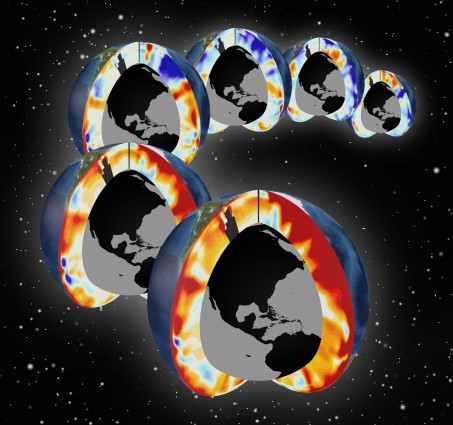By Ana Verayo, | January 19, 2016

Pacific and Atlantic southern sections showing upper-ocean warming for the past six decades (1955-2011).
A new study reveals how the ocean apparently absorbed the same amount of heat from greenhouse gas emissions since 1997, from the last 150 years.
This massive spike in warming comes from heat energy generated by global warming where humans produce 90 percent of this which is now absorbed by the planet's bodies of water instead of the ground. According to co-author of the study, oceanographer Paul Durack, from the Lawrence Livermore National Lab, California, these changes involve really huge numbers, which are nonhuman numbers.
Like Us on Facebook
This new study examines how much man made heat was absorbed by the seas in the past 150 years. Scientists discovered that there are about 150 zettajoules (one zettajoule is equal to 1 sextillion joules) of energy that was released into the ocean from 1865 to 1997.
However, in just the past 18 years, the oceans absorbed that same amount of 150 zettajoules of energy. This amount of heat energy is comparable to 500,000 lightning bolts per second.
Majority of this heat has been trapped below the ocean's surface at 2,300 feet where deeper oceans are now quickly absorbing more energy every year. This new study suggests that the amount of heat energy in our ocean today is a reflection of the state of the Earth's entire climate systems.
Durack says that after the year 2000, this rate of change in the oceans began to increase rapidly. Scientists say that when oceans get warmer, the lesser heat that they are able to absorb, which forces more heat energy to escape into the air and onto the surface of the planet.
According to marine sciences professor Jane Lubchenco, of the Oregon State University, these findings reveal potentially dangerous consequences for the oceans' ecosystems including ocean circulation patterns including storm tracks and storm intensity. Lubchenco is also a former NOAA (National Oceanic and Atmospheric Administration) chief.
Experts believe that there is more heat than the numbers presented in this study. According to Kevin Trenberth from the National Center for Atmospheric Research, this new study does not put into consideration how much heat is trapped underwater, significantly underestimating heat energy numbers in the oceans today.
This new study is published in the journal Nature Climate Change.
-
Use of Coronavirus Pandemic Drones Raises Privacy Concerns: Drones Spread Fear, Local Officials Say

-
Coronavirus Hampers The Delivery Of Lockheed Martin F-35 Stealth Fighters For 2020

-
Instagram Speeds Up Plans to Add Account Memorialization Feature Due to COVID-19 Deaths

-
NASA: Perseverance Plans to Bring 'Mars Rock' to Earth in 2031

-
600 Dead And 3,000 In The Hospital as Iranians Believed Drinking High-Concentrations of Alcohol Can Cure The Coronavirus

-
600 Dead And 3,000 In The Hospital as Iranians Believed Drinking High-Concentrations of Alcohol Can Cure The Coronavirus

-
COVID-19: Doctors, Nurses Use Virtual Reality to Learn New Skills in Treating Coronavirus Patients







